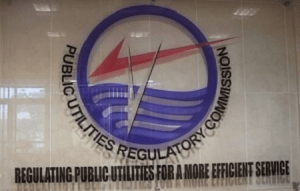Ghanaians to pay more for water and electricity from September 1
 Ghanaians will from September 1, 2022, pay more for the consumption of water and electricity.
Ghanaians will from September 1, 2022, pay more for the consumption of water and electricity.
This comes after the approval of a 27.15 per cent tariff for water and 21.55 per cent for electricity by the Public Utility Regulatory Commission (PUCR) for the 2022-2025 major tariff review.
Dr Ismael Ackah, the Executive Secretary of the Commission announced this at a press briefing in Accra on Monday.
This means that lifeline residential electricity consumers (0-30 kilowatt per hour) would now pay 41.90 pesewas instead of the earlier 36.20 pesewas.
All other residential consumers would pay a tariff between 89.04 pesewas per kWh hour and 128.39 pesewas per kWh.
For businesses, Small and Medium-sized enterprises consuming electricity of 0-300kWh pay 83.78, with those consuming electricity between 300kWh to 600kWh and above would pay 89.15 to 133.09 pesewas.
Residential consumers of water would pay a new tariff of 4.0 pesewas per metric tonne (from the earlier 3.29 pesewas p) while non-residential consumers would pay 11.21 pesewas. Commercial users would pay between 15 and 49 pesewas per month.
Dr Ackah explained that the Commission considered the economic factors including exchange rate and inflation; utility related factors, such as operational cost of the utilities and the general conditions of the consumers who would pay the water and electricity tariffs in arriving at the new tariff for the next three years.
He explained that the Commission, in balancing the interests of service providers and consumers, acknowledged that the economic variables that had occasioned the steep increases proposed by the service providers also affected consumers.
The Executive Secretary said this year’s tariff addressed the existing structural challenges to make businesses especially, SMEs more competitive, practical and create more employment for Ghanaians.
He said that: To address the challenge, for the first time, industry including, small and medium scale business owners of Hairdressing and Beauty Parlours/Salons, Barbering Shops, Tailoring and Dress Making Shops, Welding, Mechanics, Cold stores, Chop bars,
“Vulcanising and Carpentry Workshops among others will now pay lower tariffs than the residential consumer class.
“The objective here is to support industry to expand and enhance its ability to generate decent employment,” he added.
Dr Ackah reiterated that the Commission would continue to monitor the operations of the Utility Service Providers to ensure value for money and quality of service delivery.
All the Utilities had asked for increment in tariff for the 2022-2025 tariff review.
The Ghana Water Company Limited (GWCL) had asked for an increase in water tariff of 334 per cent, while the Electricity Company of Ghana (ECG) requested for a 148 per cent increase in tariffs for 2022.
The Volta River Authority (VRA) proposed a tariff increase of 37 per cent, Northern Electricity Distribution Company (NEDCo), 113 percent, and Ghana Grid Company Limited (GRIDCo), 48 per cent increase in transmission charge.
The tariff review process started with the receipt of proposals from the following Utility Service Providers, and a proposal from Ghana National Petroleum Corporation (GNPC) in respect of projected natural gas volumes and tariffs by gas supply sources.
The PURC then had extensive stakeholder consultations, which afforded the utility service providers the opportunity to explain their proposals to the public and key interest groups such as the Association of Ghana Industries (AGI) and the Trades Union Congress (TUC).
This was followed by rigorous analyses, intense debates, and further extensive consultations before the tariff decisions for the period 2022-2025 were accepted.
The last major review of tariffs was done in 2018, which resulted in a 17.5 per cent reduction for residential and 30 per cent for non-residential in electricity tariff.
Source: GNA

In view of the fact, that Europe is “Hell.bent”, to turn away from petrol and Diesel cars and over, to full electric cars, the supplierers of electricity on motorways are allowed to charge, up and over $1 .80 US-Dollars per Kilowatt hour for recharging the batteries of “E-Cars”! This is a very dangerous trend and just the fact, that in the countries, where the Lithium and Kobalt are produced, conditions for the workers are appalling and resemble Medieval practices! Child labour, uncounted deaths from toxic chemicals and farmers being forced off their lands, losing their homes and animals without any compensation, just for the
so-called “clean cars” of Europe and America!